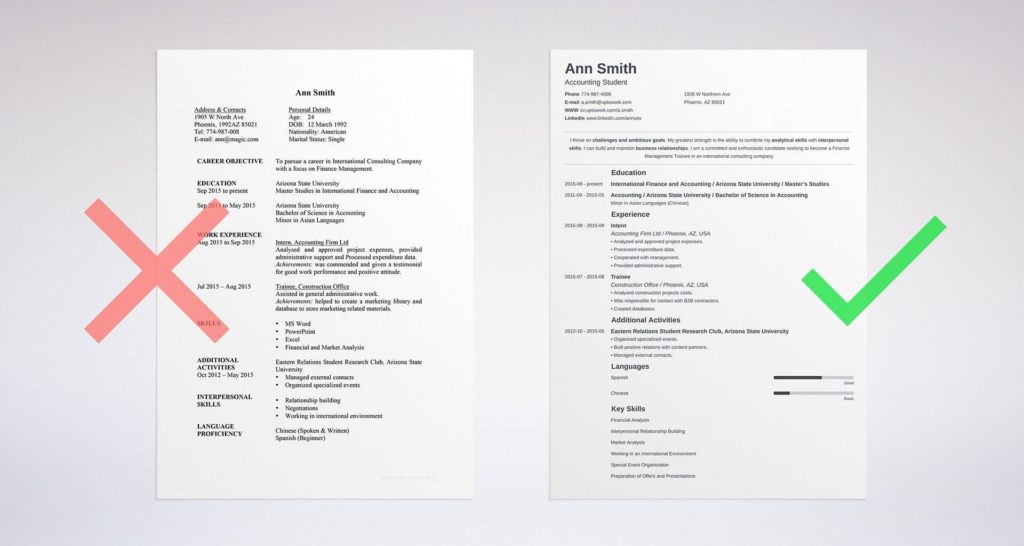What you leave out of your resumé is just as important as what you put in. On a daily basis, hiring managers are presented with resumés that are full of irrelevant information, which they promptly disregard. If you want to improve your chances of being hired, you need to know what to cut. These are three things that should be left out of your resumé.
1. Irrelevant information
When you turn in a resumé for a job, you need to make sure that it’s information that the employer needs to know. This includes personal information like your name and contact information, but also employee information that matters. If you’re putting in every job you’ve had, even going back to that summer job you had in high school, you’re going to end up with a resumé that feels unfocused and employers are going to think that you don’t know what to focus on. You need to include positions and skills that are important to your development as a candidate. If you had any positions that you only worked at for a few weeks years ago, leave them out. You want your resumé to be the best possible reflection of you as an employee. Don’t talk about your hobbies or favorite food. You want your resumé to be as professional as possible. You can show more of your personality when it comes time for the interview.
2. Too much from school
If you’ve just graduated from college, then it’s understandable to include information like your GPA. The further you go into your professional career, the less that kind of information is desired. It’s especially improper to include information from high school if you’ve obtained a degree from a university. As you retool your resumé, you can still include information from college. However, it should be as simple as the school, the dates you attended, and the degree you obtained. Your work experience and professional skills can speak more to your qualifications for the position you’re applying to. To simplify things, checkout Resume.io for a job winning resume.
3. Your age
While it’s illegal to discriminate based on age, that doesn’t mean some employers won’t try to circumvent that. Putting your age or date of birth can influence employers to pass you over for an interview, even if you’re qualified. You have the right to be treated just like any other qualified candidate. You shouldn’t let your application be rejected because an employer unconsciously believes that you are either too young or too old to perform your duties. Your resumé should be what gets you through the door, not what gets the door closed on you.
Trimming down your resumé to avoid extraneous details might be difficult at first. There could be some things that you are attached to, but you know that need to be excised. Getting rid of them won’t make you seem any less qualified. Instead, they’ll help you to appeal to employers by showing you know how to get right to the point and help you to find the right company. When you learn more about how to write a resumé, you can greatly grow in your professional life.
